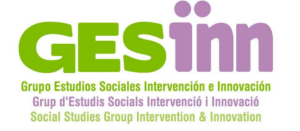The University of Valencia (UV) is a public university located in Valencia, Spain and was created in the year 1499. This university offers around 250 university degrees, including bachelor’s degrees, master’s degrees, and doctoral programmes with international projection, in a wide range of studies, from humanities, sciences, health sciences, social sciences to engineering.
UV has a strong research profile. It has more than 200 active research teams in different disciplines. In addition, it participates in various European projects such as Horizon Europe and Erasmus+.
UV is represented by a multidisciplinary team of three research groups:

ARMAQol
Advanced Research Methods Applied to the Promotion of Quality of Life. Attached to the Department of Methodology and Behavioural Sciences of the Faculty of Psychology and Speech Therapy. The ARMAQoL research group aims to study ageing and quality of life (Integral Palliative Care and Humanisation of care), as well as design and study the efficacy of interventions in areas such as mental health and well-being of professionals working with youth, especially in educational and social care contexts. It is also involved in prevention of gender violence and innovation and educational quality (commitment, entrepreneurship, employability in graduates with functional diversity, occupational health in education professionals…), systematic reviews and meta-analyses and crosscultural validation, adaptation of measures and generation of questionnaires and new protocols in the field.
TRANSICIONS
Transitions from Education to Work in Contexts of Social Vulnerability.
Attached to the Department of Didactics and School Organisation of the Faculty of Philosophy and Educational Sciences. TRANSICIONS is a multidisciplinary research group. It brings together researchers from education, psychology, sociology, and anthropology to study educational and social transitions, especially from school to employment. The group focuses on vulnerable youth and young adults facing social and labor insertion challenges. With strong national and international collaborations, TRANSICIONS conducts empirical, socially engaged research aimed at promoting education and employment rights, combining qualitative methods with direct interaction with professionals, institutions, and policymakers to foster social justice and meaningful change.

GESinn
The GESinn research group is based at the Department of Social Work and Social Services of the Faculty of Social Sciences. Its focus lies in community social services, analyzing the processes of vulnerability and social exclusion in different collectives: childhood and youth, gender and violence, international cooperation, rural and urban development, and social exclusion, always applying a gender perspective. The group adopts a transversal, critical, and constructive approach to social realities. The transfer of knowledge to society is one of the axes of greatest impact of the group, implementing actions from patents aimed at improving the quality of life of people at risk, analysing the processes of vulnerability and social exclusion of different groups.
Main research areas:
ARMAQol
01
Research in the promotion of quality of life, education and entrepreneurship and its transitions from education to the job market, especially in vulnerable population, offering solutions from quantitative and qualitative methodology
02
Providing evidence on the suitability of different theoretical approaches.
03
Offering information, support, consultancy and constant updating, especially in complex statistical research methods.
04
Validation of scales or questionnaires, interventions and protocols.
05
Design and carry out of sampling, testing, data management and cleaning, selection, execution and interpretation of analyses, and report preparation. All of this in different environments, such as the educational field (infant, secondary, baccalaureate, university, training for older adults).
TRANSICIONS:
01
Study of the variables associated with the processes of inclusion in the labour market through the analysis of the social structure, the processes of commodification, processes of precariousness.
02
Optimisation of procedures, techniques and resources for the professional qualification and socio-occupational integration of vulnerable groups.
03
Employability: personal and contextual factors, assessment and optimising intervention. Individual factors, personal circumstances and external factors linked to the employability or relative position of the person before a job.
GESinn
01
Research and improvement of social services and community welfare systems, with special focus on childhood, adolescence, and youth to promote their social development.
02
Prevention and analysis of gender-based violence, promotion of equality, and development of inclusive programs to reduce social inequalities.
03
Social innovation and knowledge transfer applied to socio-educative fields, aiming to improve quality of life in its different stages.
Researchers:
José Manuel Miguel Tomás
ARMAQoL Principal Investigator and main contact
Supervision of the methodology and quantitative analysis, making use of expertise in psychometrics, instrument validation, and emotional well-being.
María Amparo Oliver Germes
ARMAQoL Principal Investigator
Supervision of the methodology and quantitative analysis, making use of expertise in psychometrics, instrument validation, and emotional well-being.
Mireia Abella Fernández
ARMAQol Researcher
Responsible for quantitative tasks
Davinia Palomares Montero
TRANSICIONS Researcher
Supervision of sample collection and qualitative analysis, contributing expertise in educational transitions, socio-labour inclusion, and participatory research methodologies.
Julián Bell Sebastián
TRANSICIONS Researcher
Responsible for qualitative tasks.
José Javier Navarro-Pérez
GESinn Principle Investigator
Coordination and supervision of the planning and qualitative
analysis. He is also the Nationale Teamleader for the UV

